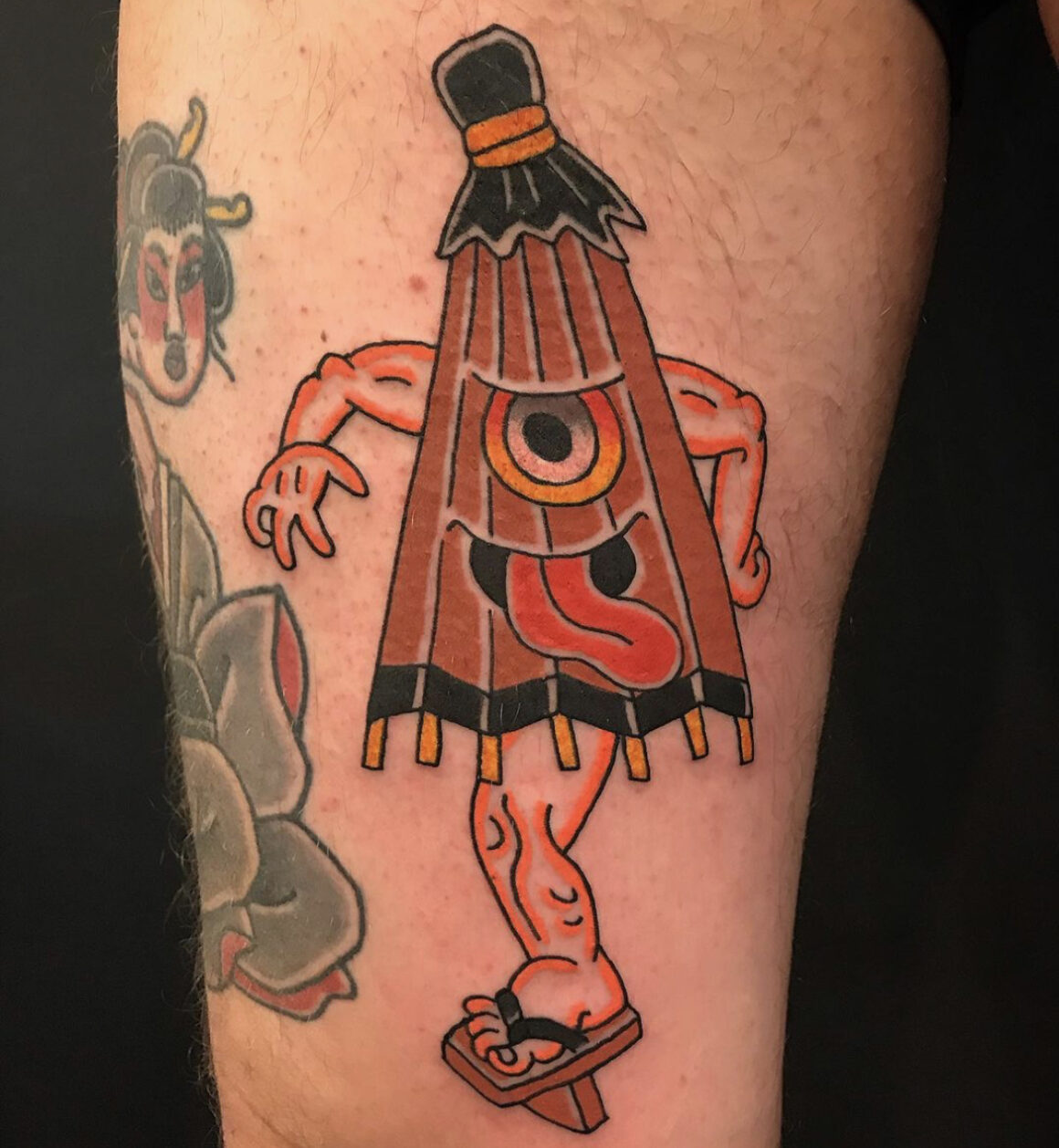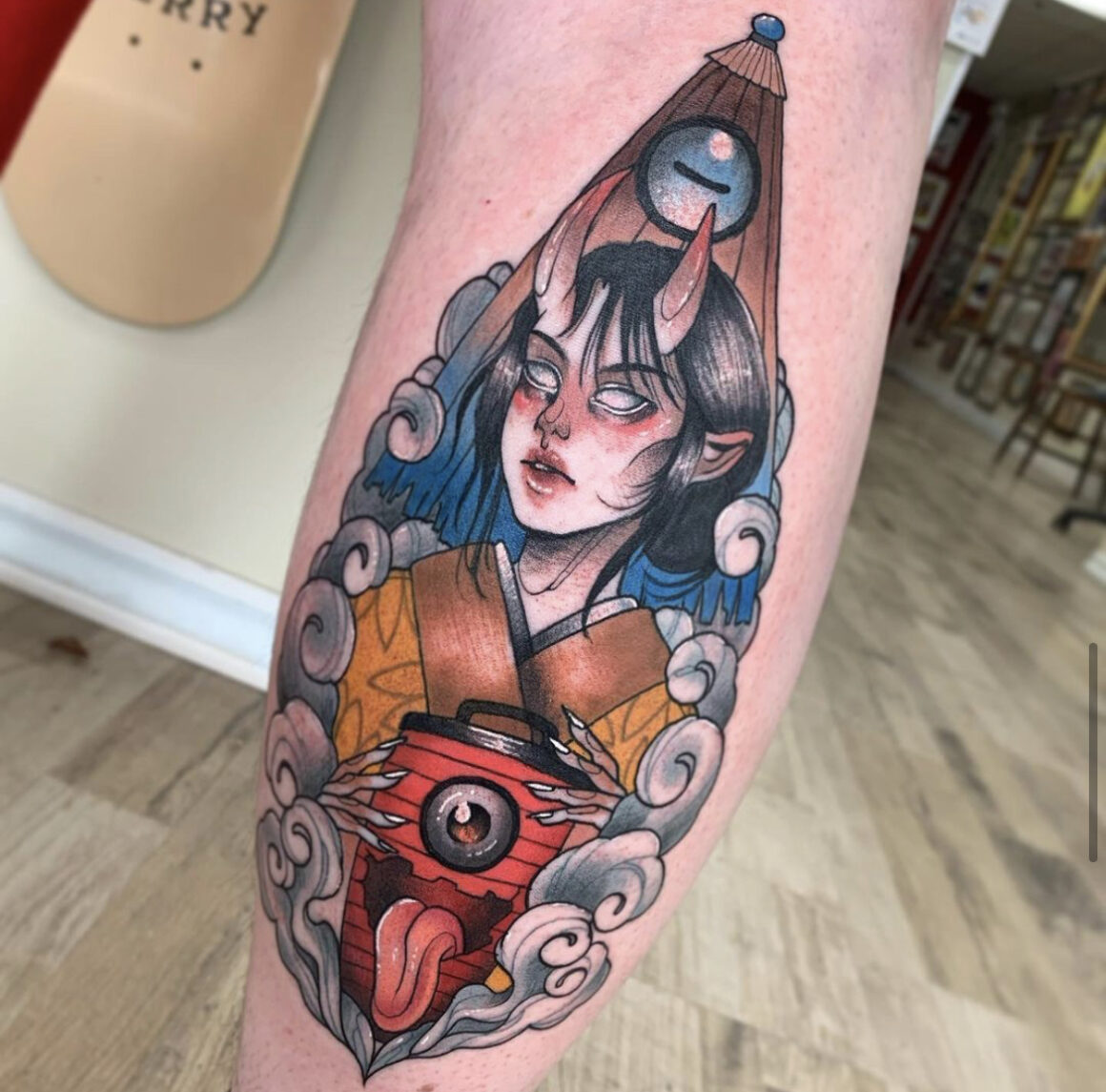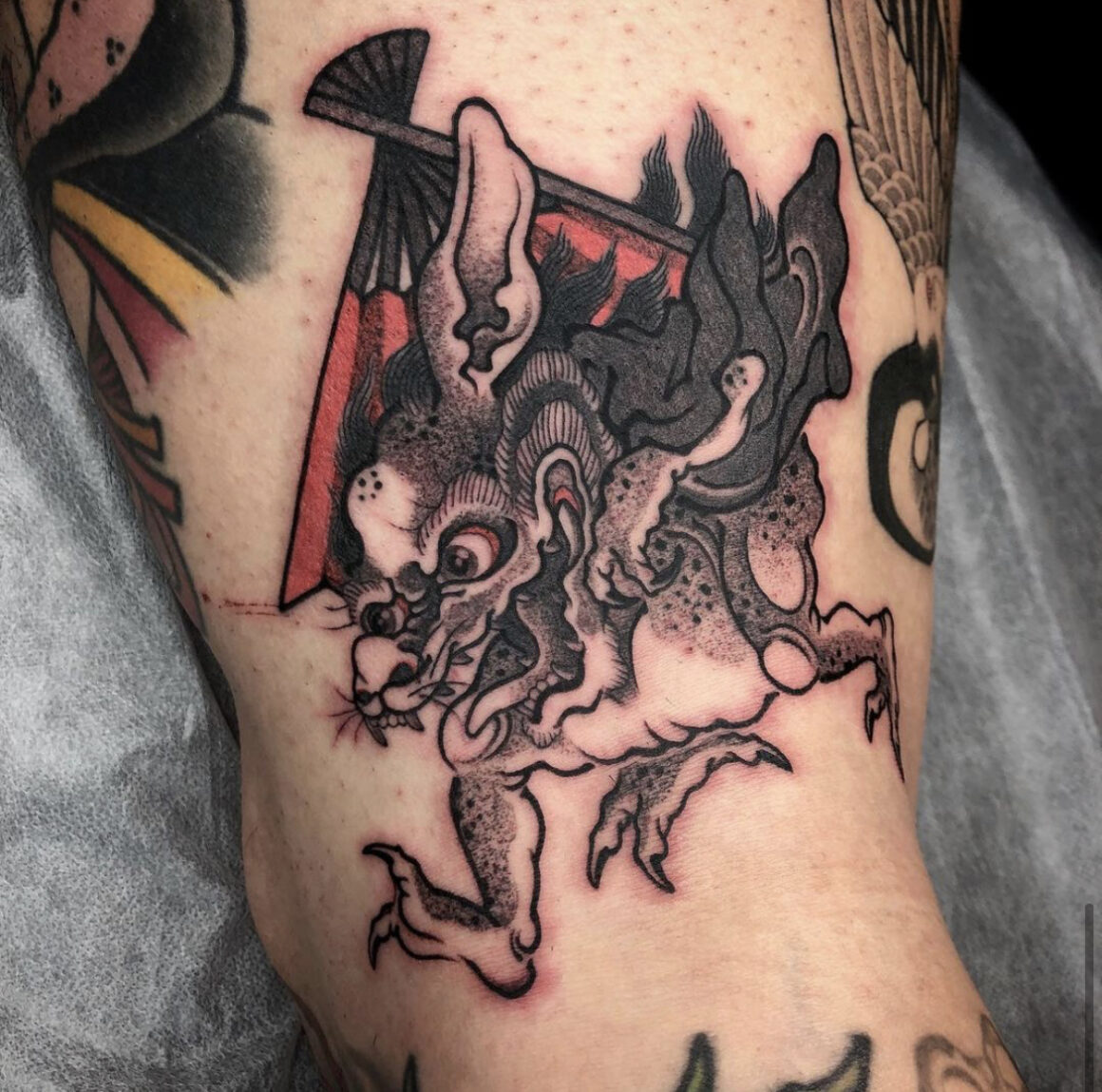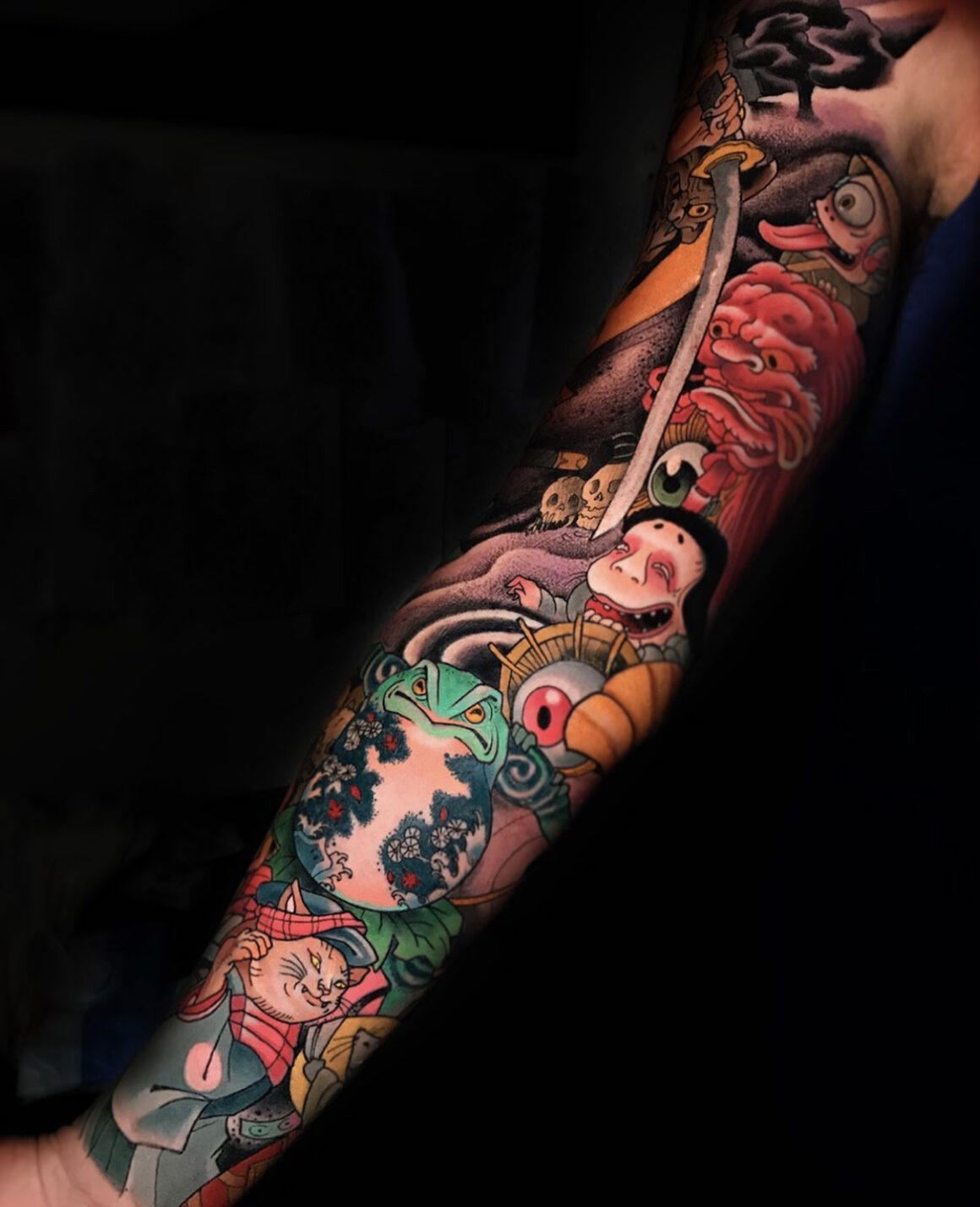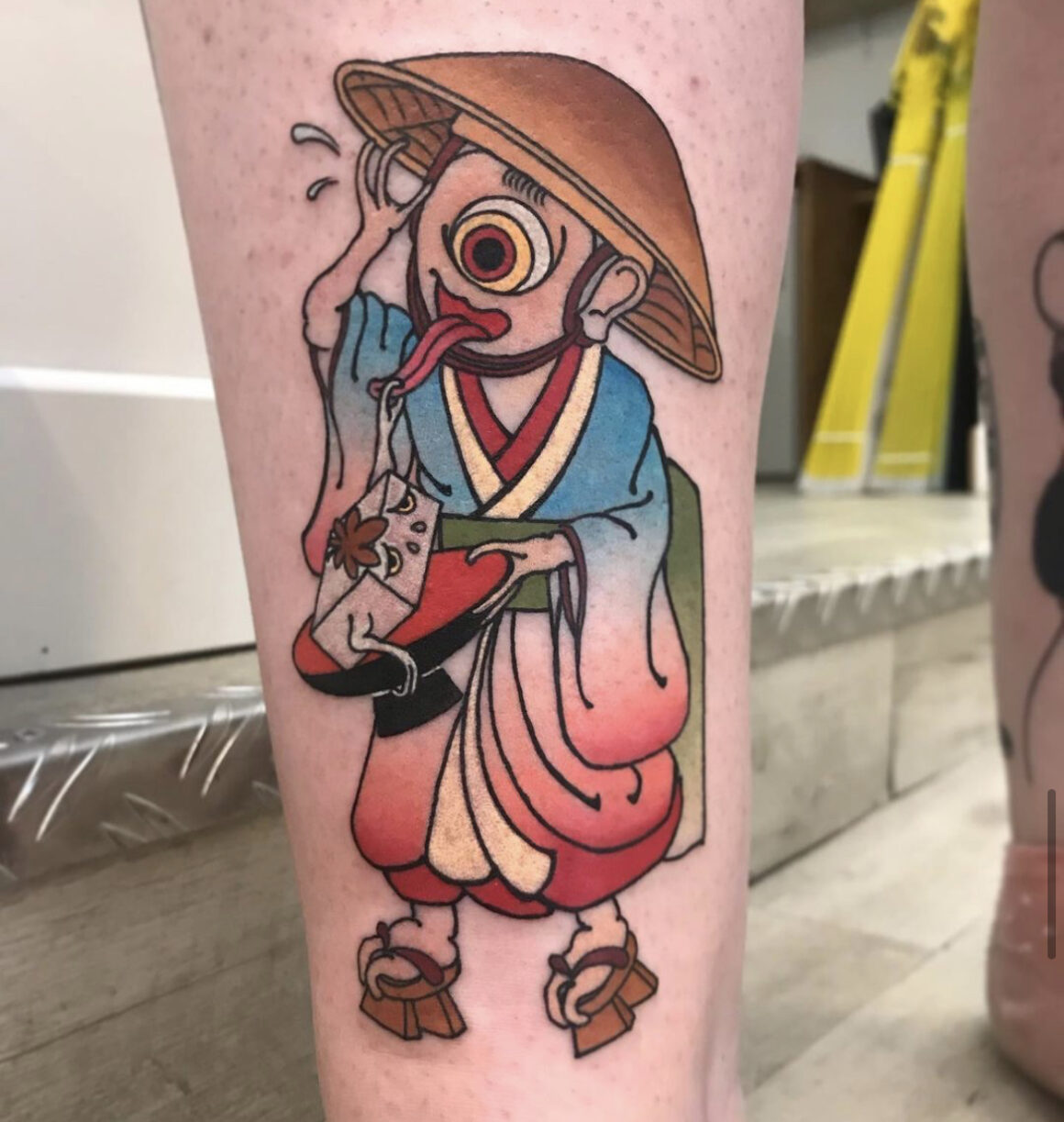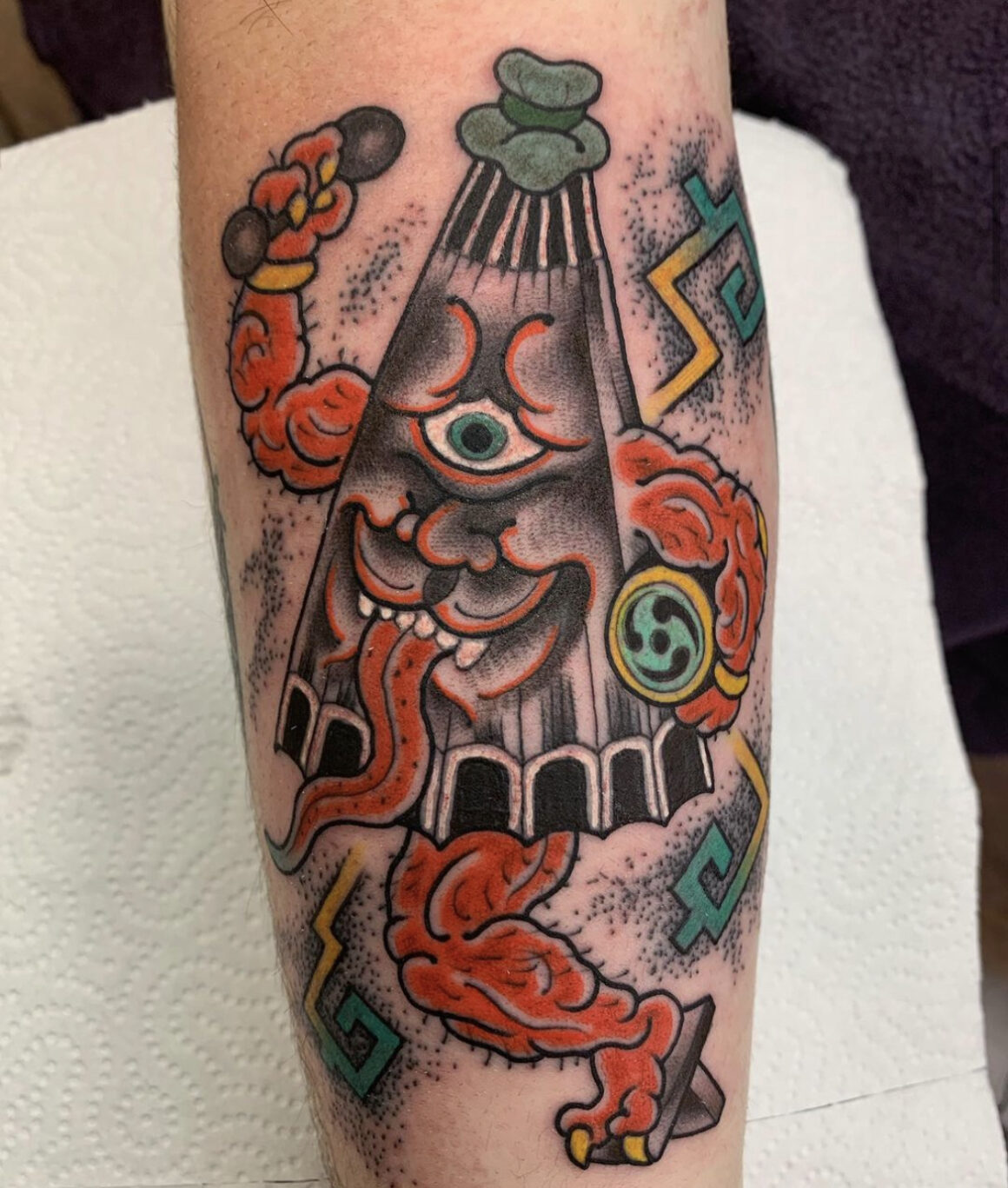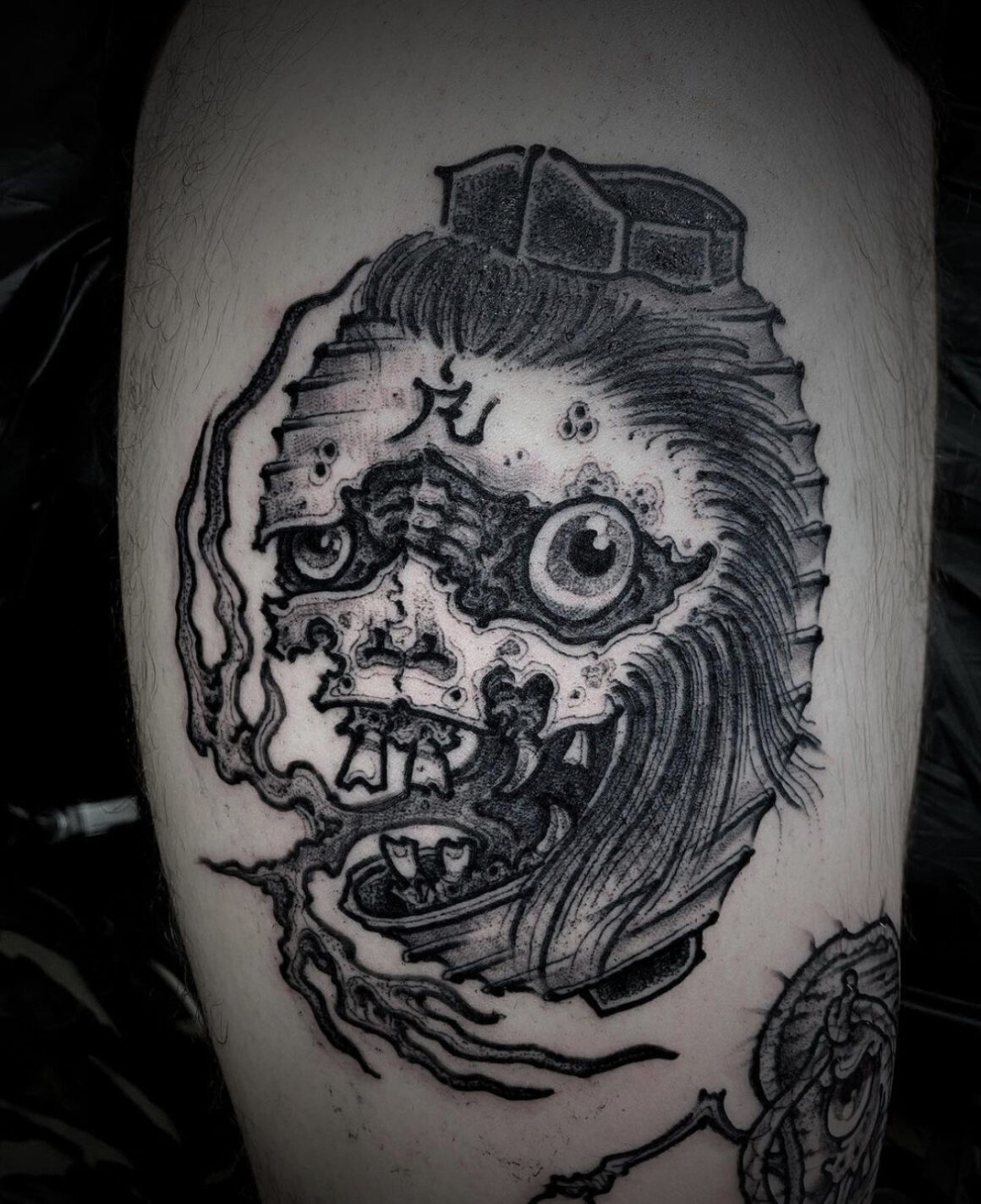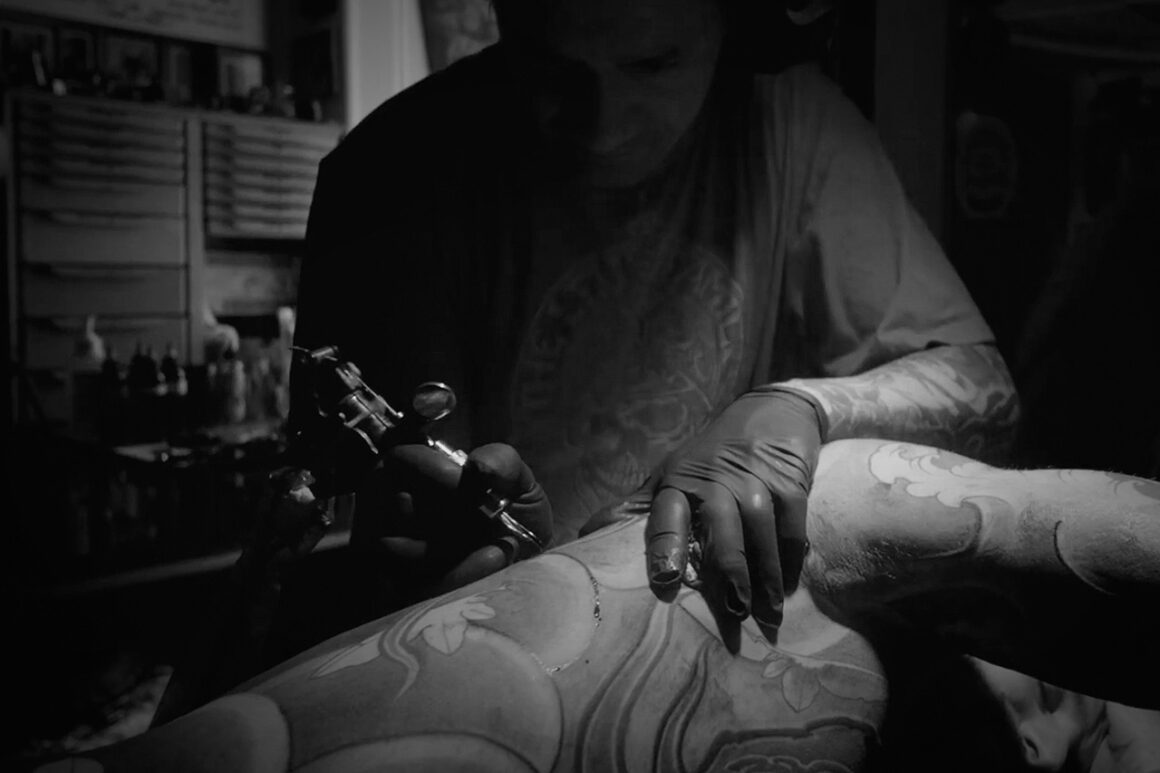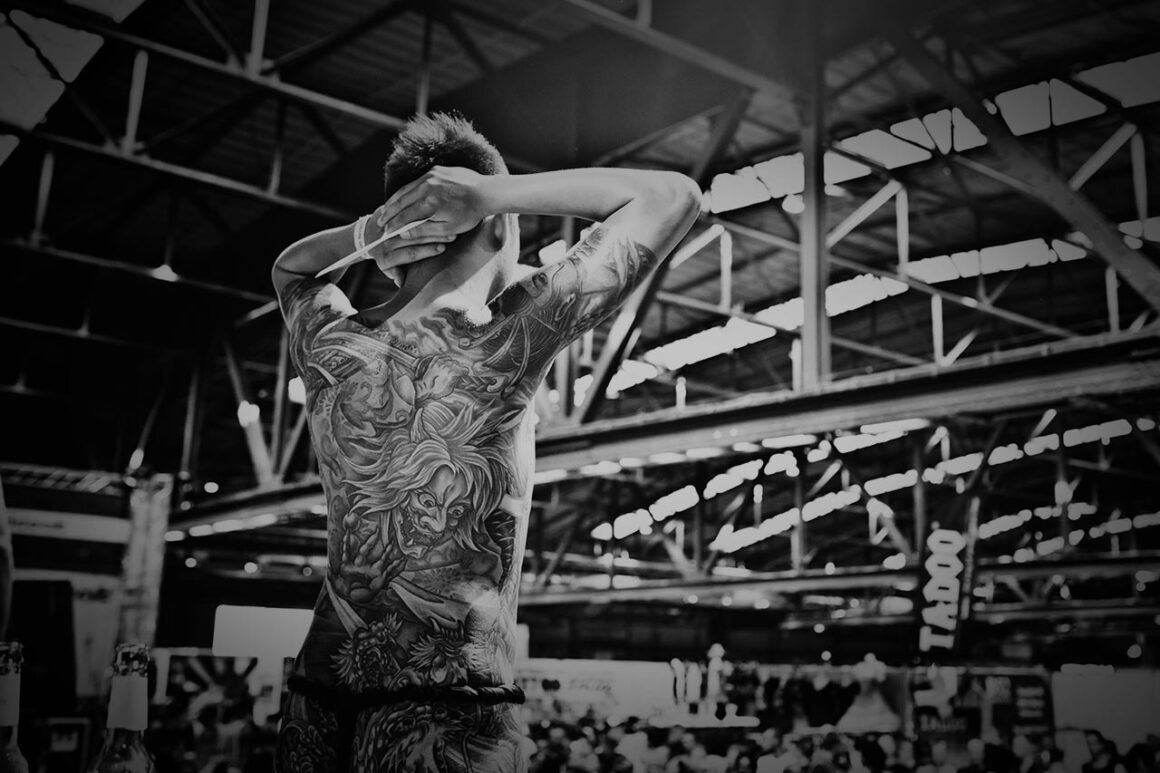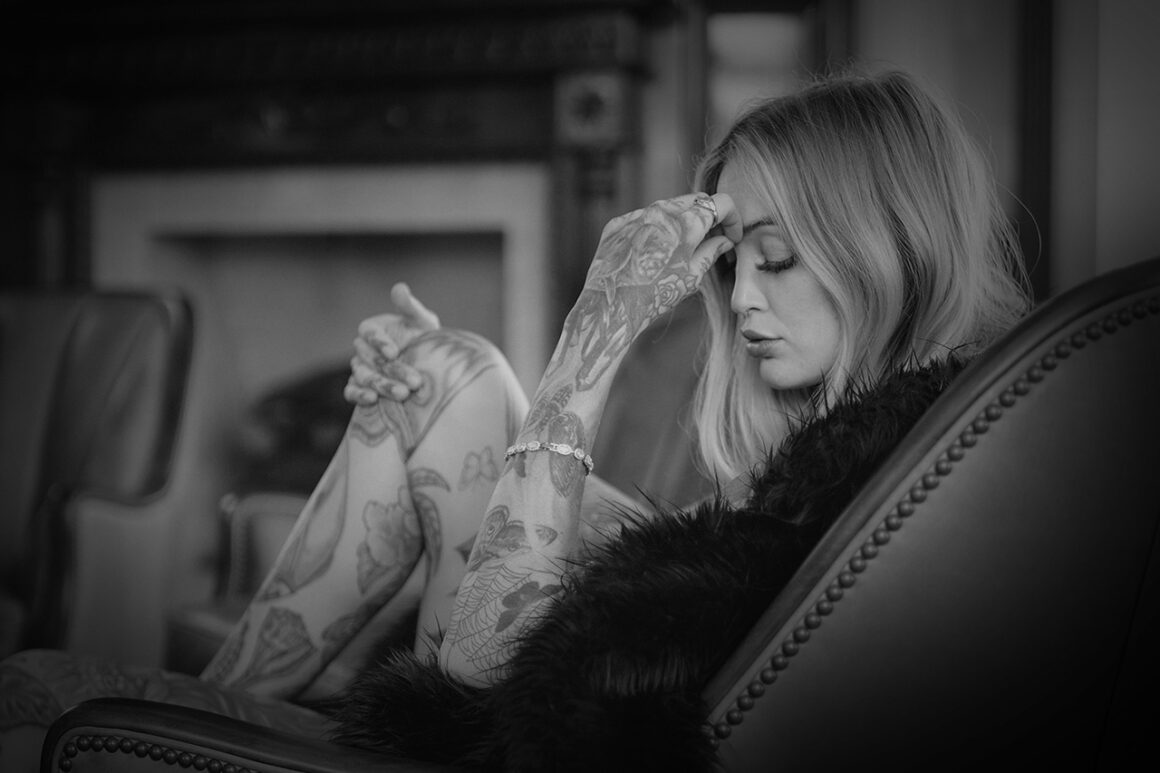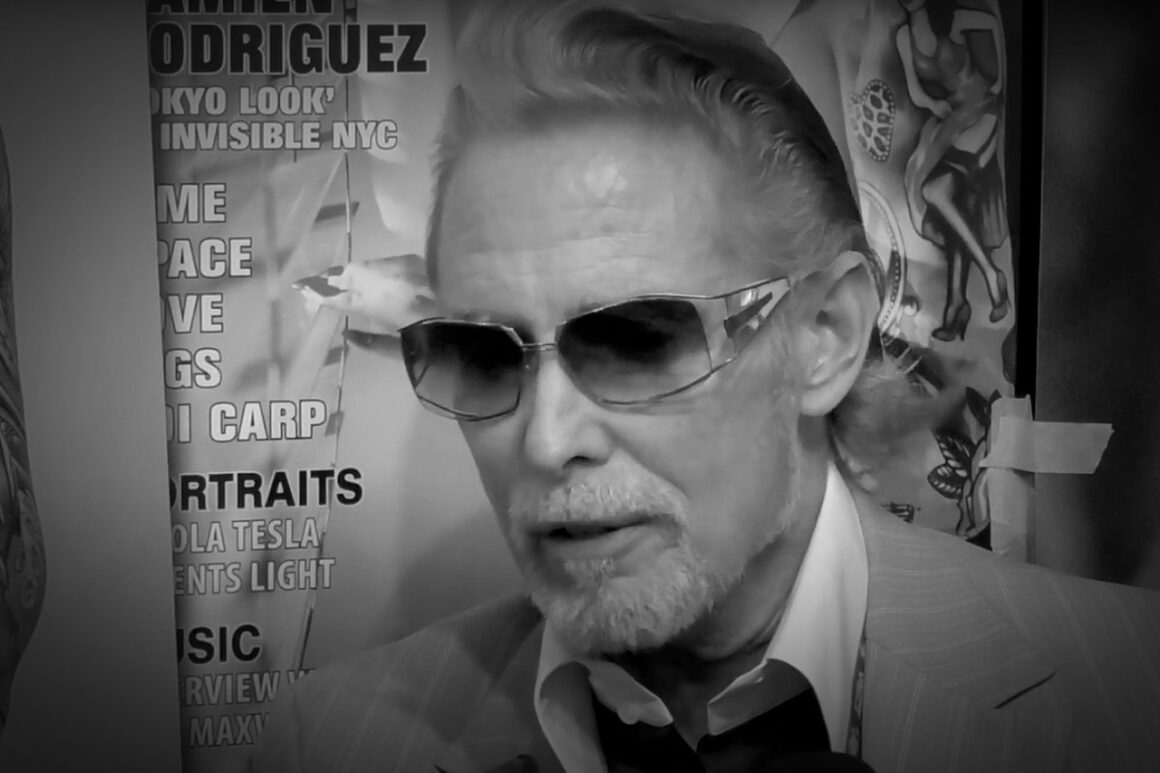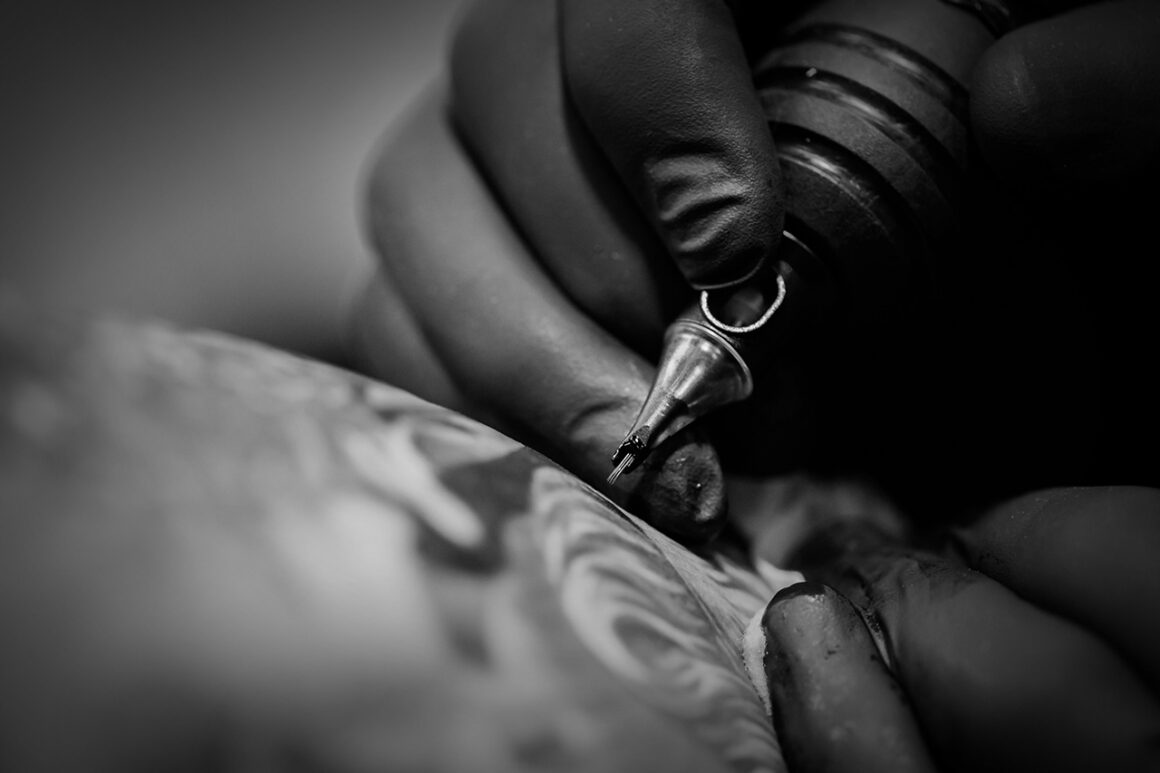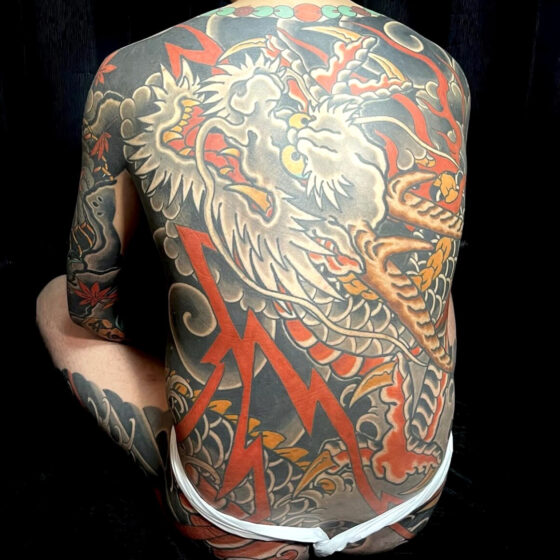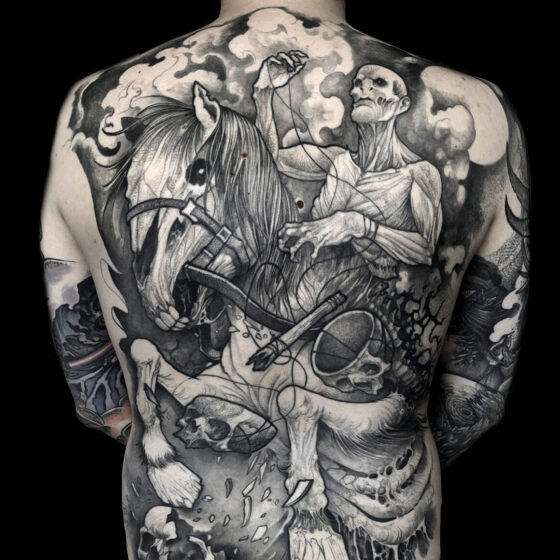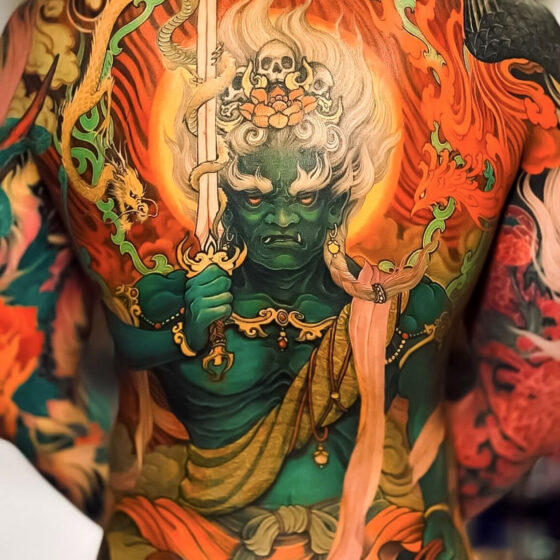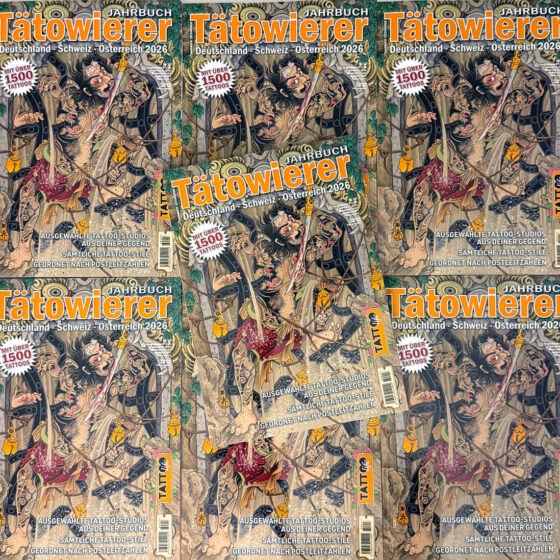Yōkai is a Japanese word that can be translated with “apparitions”, “ghosts”, or “demons”: this term usually refers to supernatural creatures from the Japanese mythology.
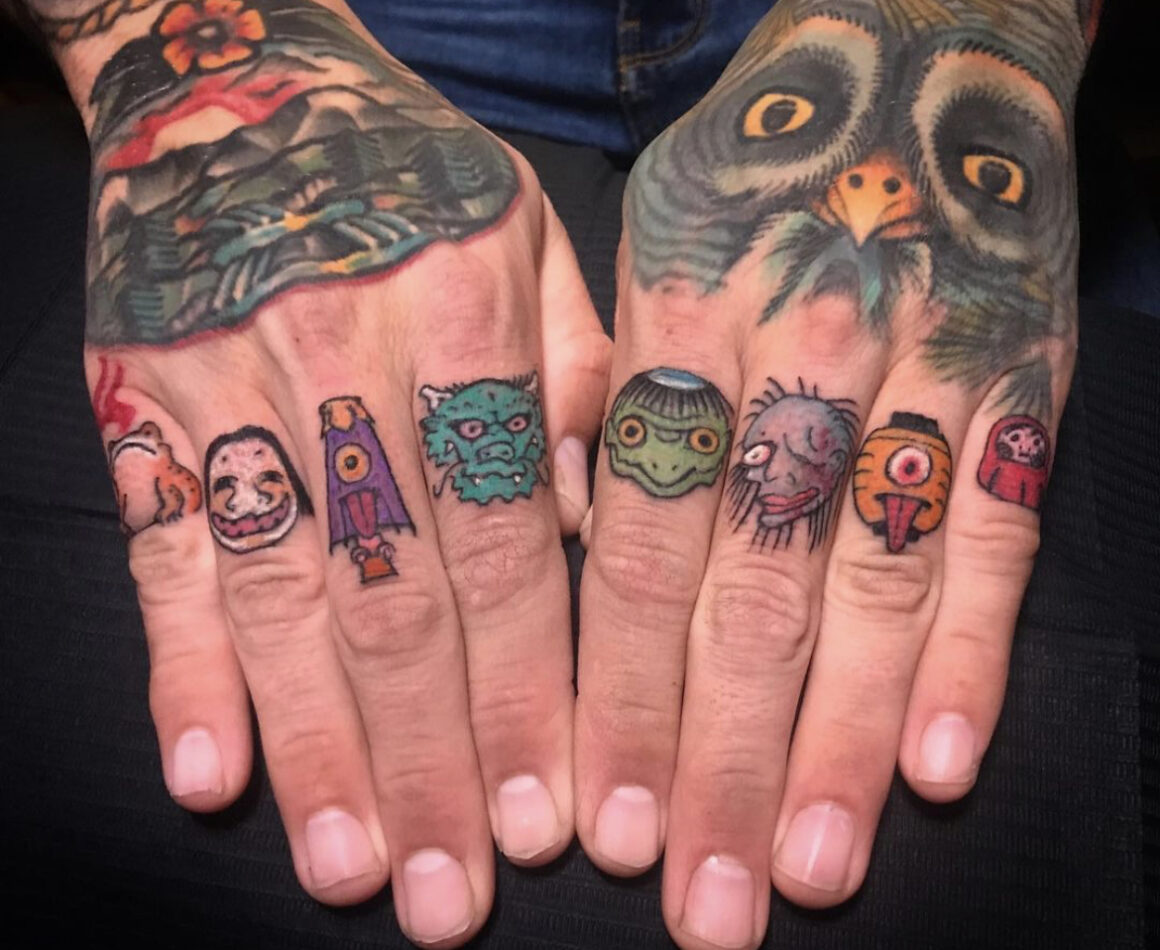
The legends refer to different kinds of yōkai, generally evil and spiteful: among these, for example, the oni, the kitsune, the tengu but also for example the lady of the snow (known as yuki-onna), the kappa or the nure-onna.
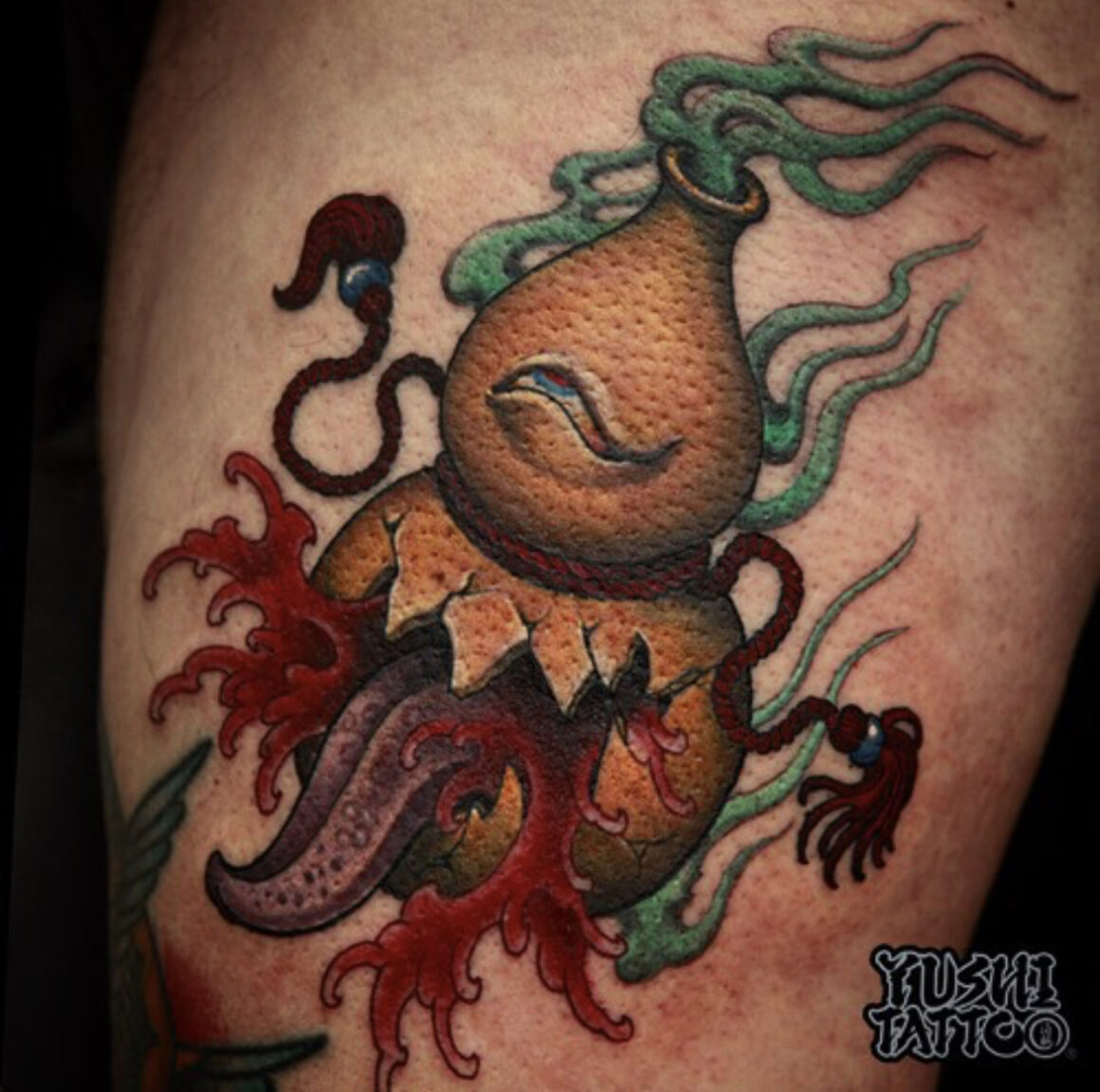
Most yōkai have supernatural powers and are often considered dangerous; some simply avoid humans and inhabit wild and remote areas, while others choose to live close to built-up areas, attracted by the warmth of houses.
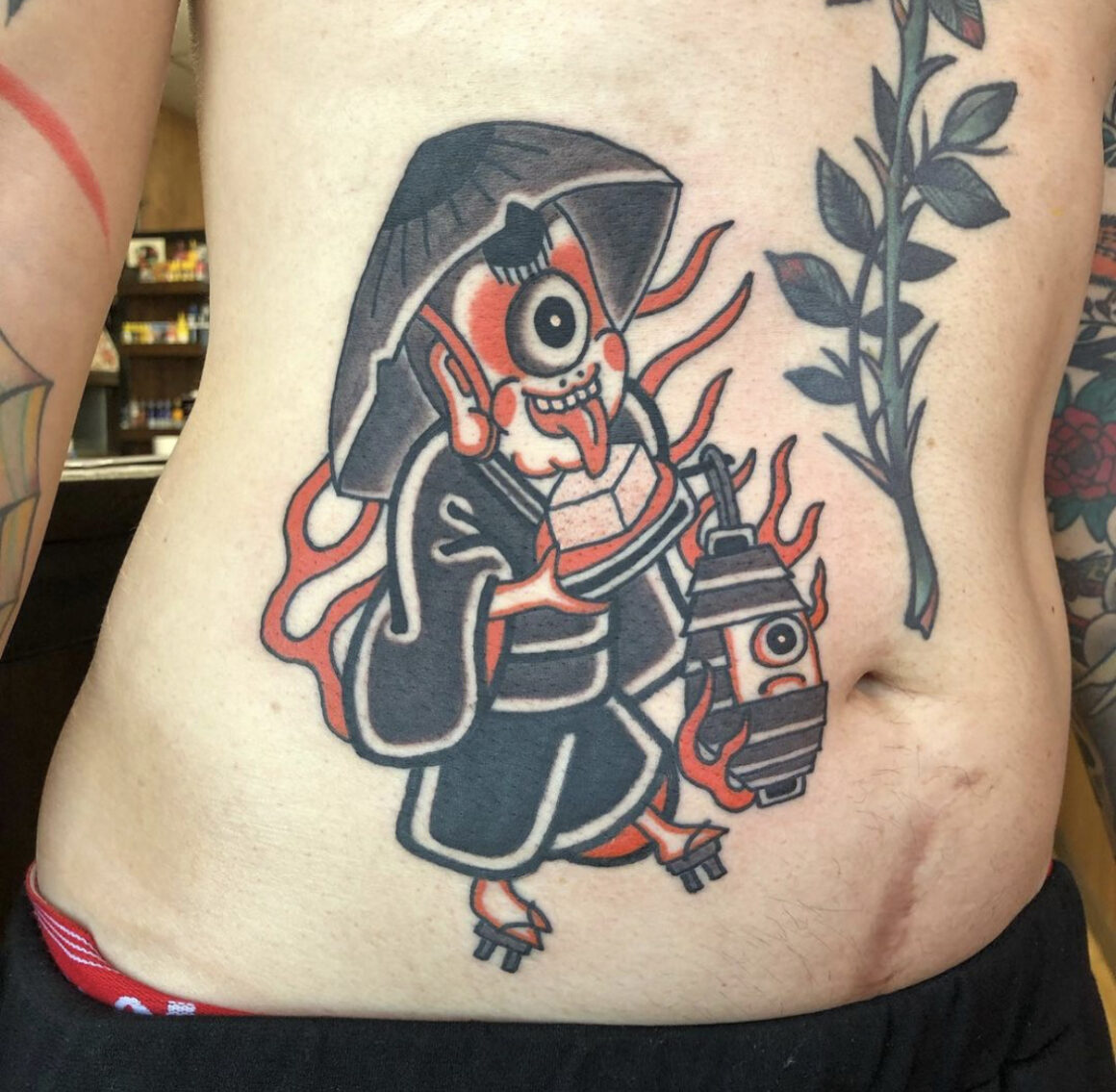
The yōkai are traditionally associated with fire and summer, a season in which the spirit world is close to the human one. The Yōkai, are able to change shape and are often represented with traits between the grotesque and the terrifying.
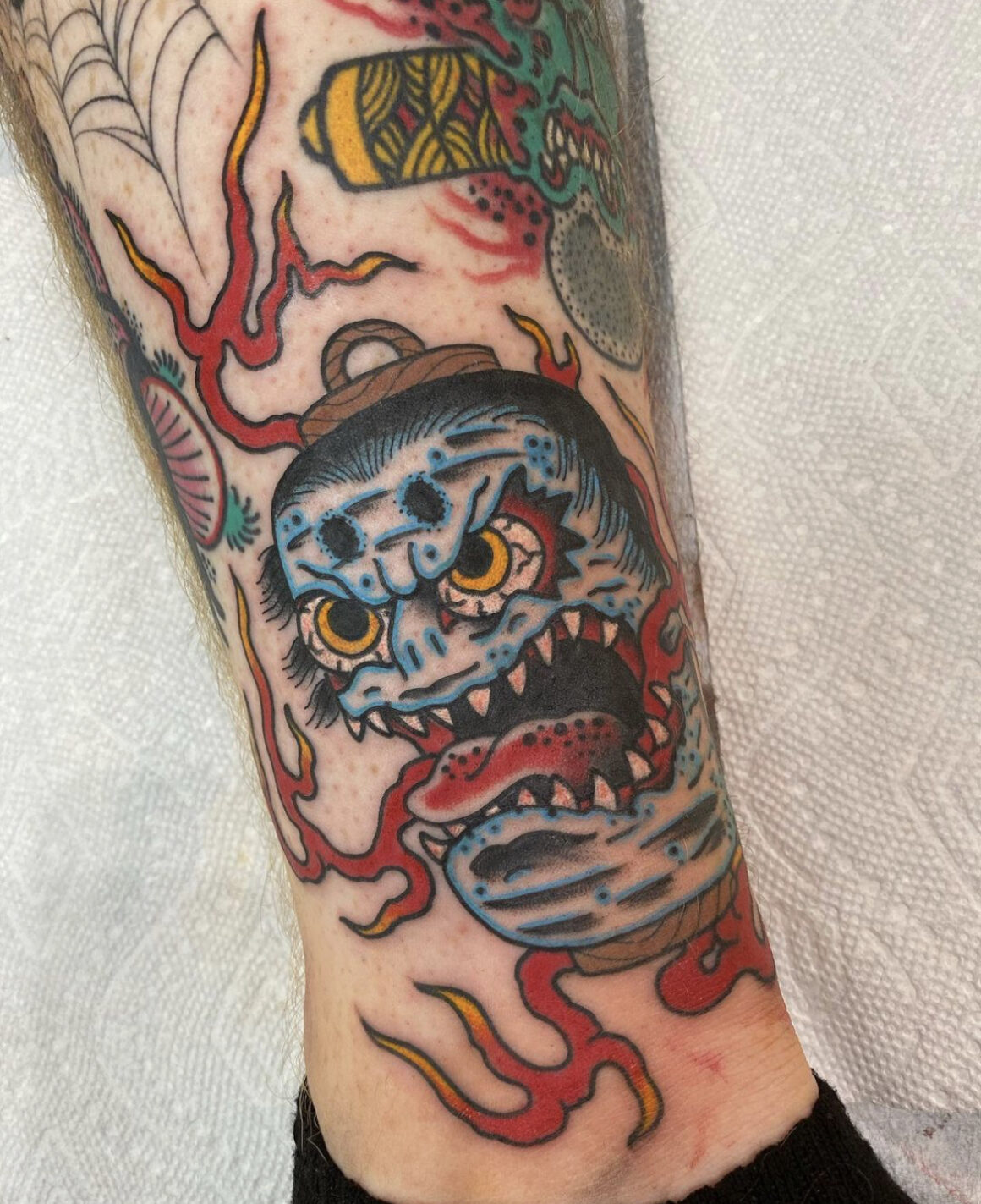
There is a wide variety of yōkai in Japanese mythology: practically all monsters and supernatural beings, even creatures of Western mythology, can belong to this category.
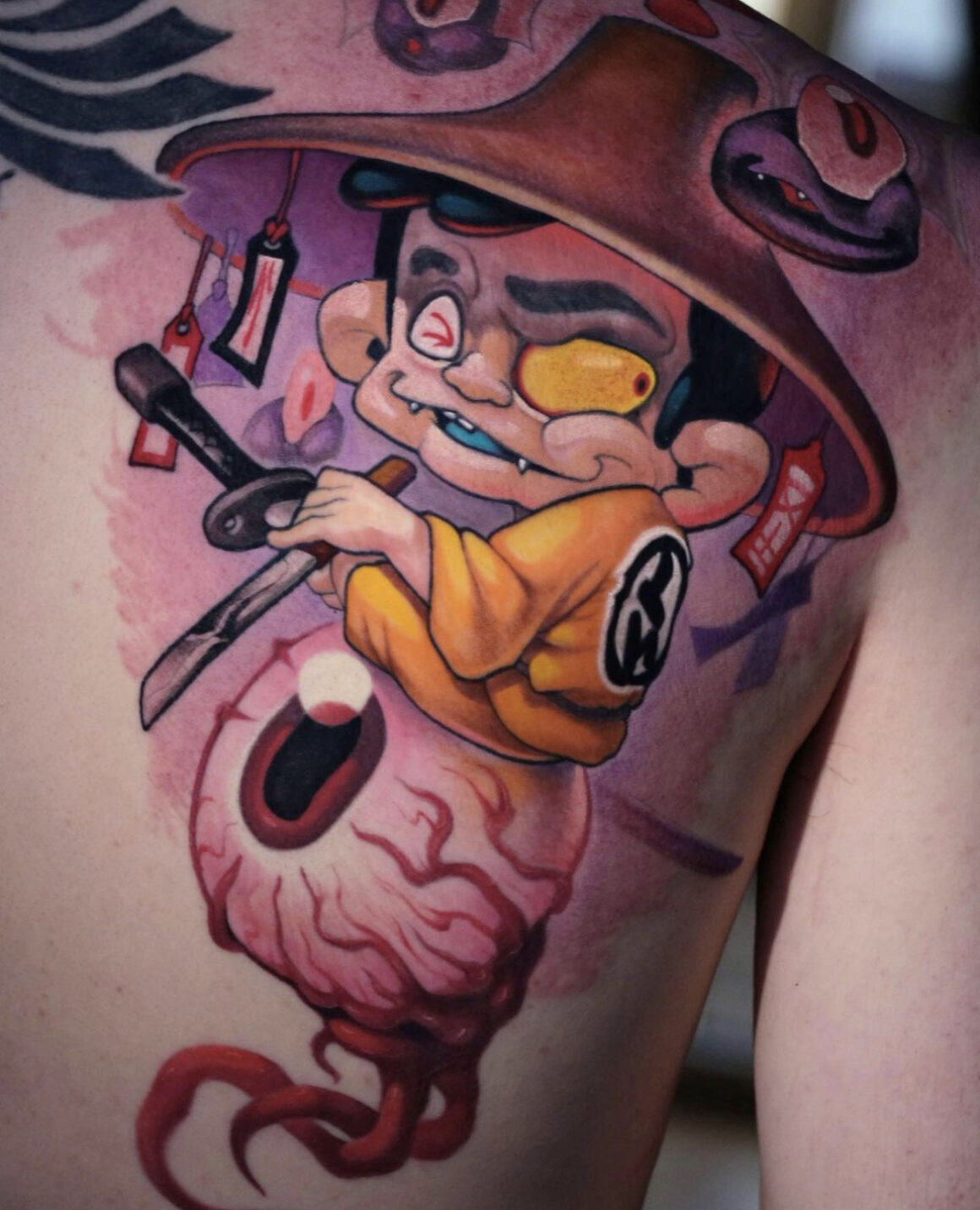
A particular class of yōkai are the tsukumogami, commonly used objects that come to life after a hundred years; the most famous (considered a non-scary monster) is karakasa: generally represented as a parasol with one eye and only one foot with a geta (the typical Japanese sandal).
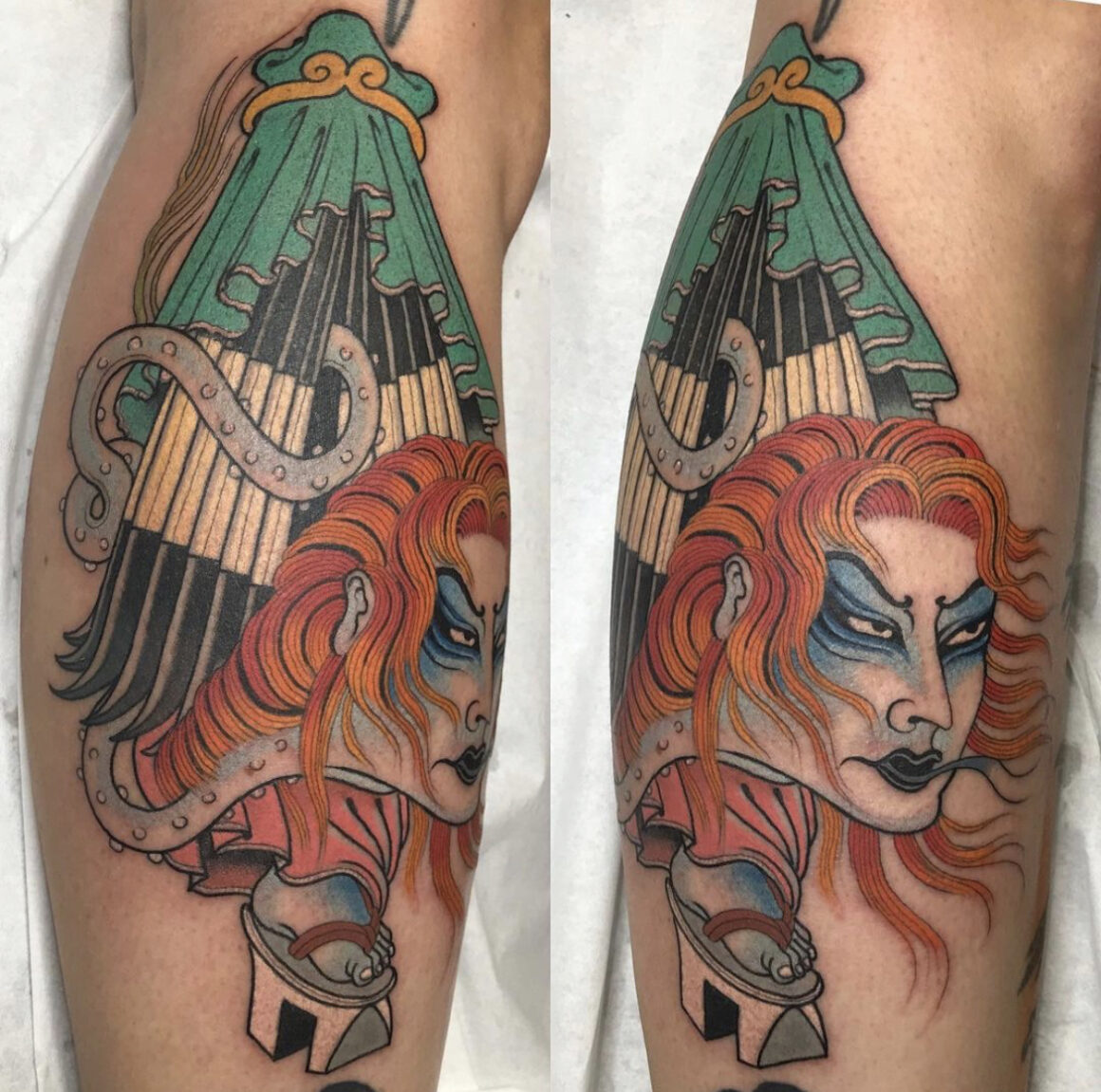
Many yōkai are present in literature and artistic representations inspired by tradition, particularly in tattoos but also in manga.
Take a look at our gallery and choose your favorite!
